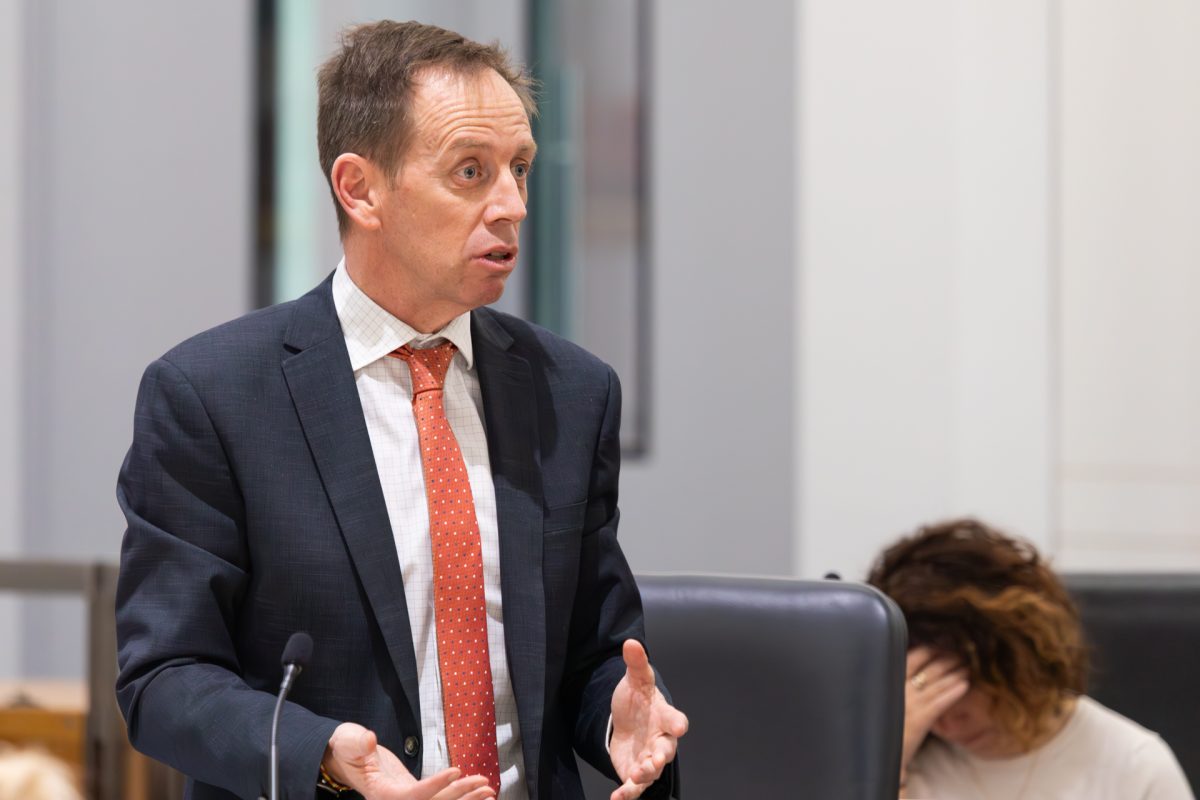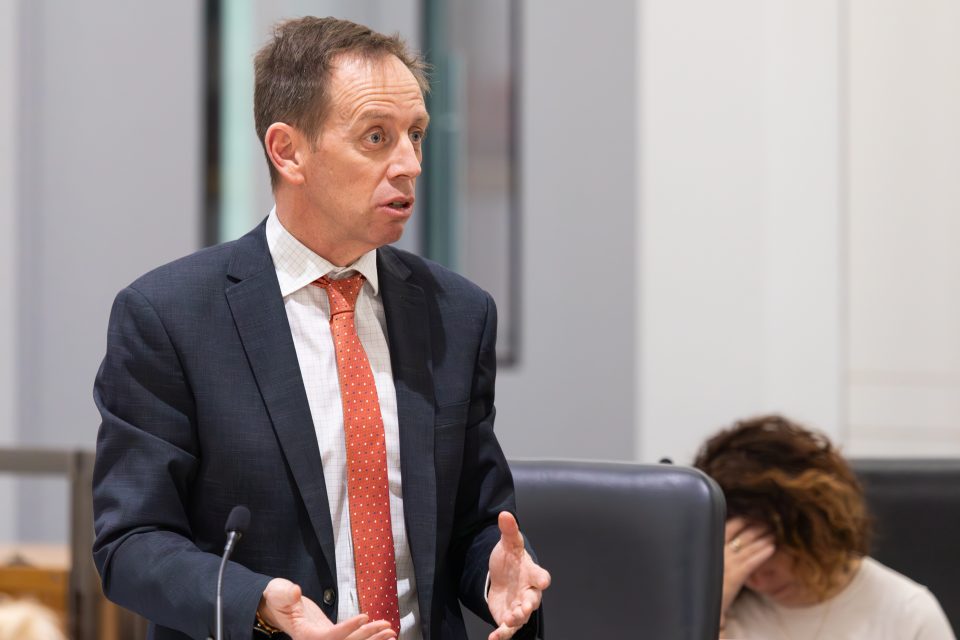
Shane Rattenbury says exposure to gambling advertising can set children on a path to developing harmful habits. Photo: Michelle Kroll.
Minister for Gaming Shane Rattenbury is seeking community feedback on two proposals to ban gambling ads from radio and TV at certain times – restrictions aimed at protecting children.
The ACT Greens leader says young people were more exposed to gambling advertising than ever before and were inundated with gambling messages in their everyday lives.
“Exposure to gambling advertising can lead young people to view it as a positive activity, putting them on a path to developing harmful habits in the future,” he said.
Canberrans are being invited to submit their opinion online to two possible options:
Option 1: Restricting gambling advertising on radio in the ACT between 6 am and 8:30 am and on TV between 4 pm and 7:30 pm, Monday to Friday (inclusive), except on dedicated sports channels.
Option 2: A more restrictive proposal to ban gambling advertising in the ACT on radio between 6 am and 8:30 am, Monday to Friday (inclusive), on TV between 4 pm and 8:30 pm (or later), Monday to Friday (inclusive), and on TV between 6 am and 8:30 pm, Saturday and Sunday, except on dedicated sports channels.
Associate Professor Aino Suomi, director of the ANU’s Centre for Gambling Research, said the consultation process is a step in the right direction but doesn’t go nearly far enough.
“I’m not thrilled by the two options. We should ban gambling advertising at any time children could be watching TV,” she said.
“The evidence is there. Gambling advertising works, full stop. It’s also dangerous for adults to be exposed.
“We are in a similar space where smoking was many years ago … we are tinkering at the edges, smoking ads were eventually banned outright and I don’t think anyone wants to bring them back.”
Television advertising is regulated by the federal government in Australia. However, it is possible for a state or territory to restrict advertising content within its jurisdiction – the South Australian Government has banned gambling ads in its state between 4:30 pm and 7:30 pm on weeknights.
Associate Professor Suomi also noted that most children aren’t really listening to the radio and watching Free-to-Air TV anymore.
“Once kids hit 10,11 or 12, they’re interacting online. That’s where you need to ban ads – there are so many on apps.”
David Pollard, a candidate for Independents for Canberra at the upcoming ACT election, expressed a similar view.
“The proposed options might even have been effective in the mid-2010s. The way we consume media has drastically changed in the five years since the study on how children are exposed to gambling ads on TV. While any evidence-based approach to harm minimisation is worth exploring, the effectiveness and timing of this initiative are questionable.
“Cherry-picking certain times and media platforms seems to be taking a very safe path – there are more politically courageous ways to go.”
The ACT Government said it is also open to hearing about other potential restrictions, including those targeting subscription television and online platforms.
Mr Rattenbury had already asked his Justice and Community Safety Directorate to explore gambling TV and radio bans in 2022.
“Governments always move slowly on this issue,” Professor Suomi said.
Feedback on the ACT Government options can be provided on the Your Say website. A ‘Listening report’ detailing feedback outcomes will be published later this year.
